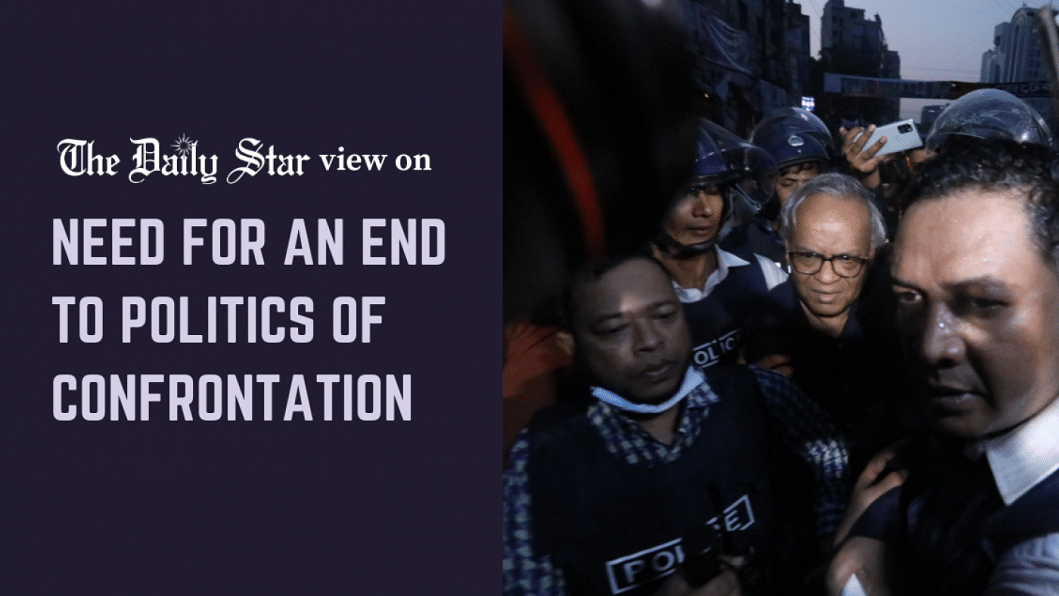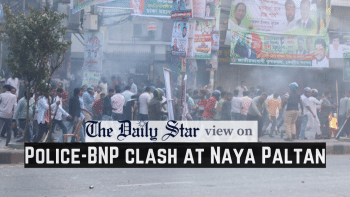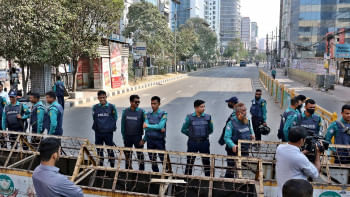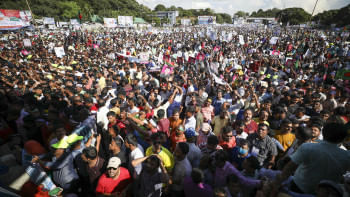Pursuit of peace through violence?

After Wednesday's deadly violence at Naya Paltan, there is only one direction in which the ruling establishment can look – inward. What could it possibly gain from a heavy-handed confrontation and raid on the central office of BNP? Was it to orchestrate a situation that would paint the party in a bad light? Was it a message that a mobilisation of this scale at the heart of the capital will not be tolerated? Was it to suppress BNP's months-long movement? Whatever the motive was, it's unlikely to work in the long run. If anything, the ruling camp has come out from the whole exercise looking flustered and rather desperate in the face of a resurgent opposition.
The government, therefore, must look inward before it moves forward on this issue. True, given how BNP has promoted its December 10 rally as the culmination of a "mass upsurge" against an "anti-people" government, it has the potential of reaching a flashpoint. But rallies held by BNP in other divisions in the build-up to December 10 have been mostly peaceful, meaning that any objection to its holding one at Naya Paltan has less to do with law and order than with political considerations. After all, BNP has held some 11 small and large gatherings in front of its central office over the last three months. If police were not bothered about them before, why are they now?
BNP must look inward, too. After all, it could have softened its stance on its choice of venue – which ostensibly led to Wednesday's chaos. It could have chosen Suhrawardy Udyan, regardless of the restrictions it says this might put on its rally, or shift the venue away from the city, as it did during the Faridpur rally. But the stringent conditions imposed on its venue selection may make any compromise look like a defeat to Awami League, a fact validated by the latter's toughening of its anti-BNP stance even after the Naya Paltan mayhem. Reportedly, police have declared the area a "crime zone". Meanwhile, more than 1,900 BNP leaders and activists have been sued over the clash, while about 450 of them have been arrested and produced before court. The media has also reported various forms of obstruction to movement around the city, like those reported during previous rallies, potentially to discourage participants.
What all this shows is how the prospect of peace is getting dimmer by the hour. Still, as a newspaper that has always stood for democratic rights and freedoms, we feel duty-bound to call for an end to this unsavoury display of confrontational politics. Our appeal may well be unheard, but we must still stress on the importance of allowing BNP to hold its rally, unimpeded. Any lingering of tensions in this regard serves none of the parties involved, certainly not the public. We must remember that any pursuit of peace through violence or heavy-handedness is nothing but a political dead end, which we can ill-afford given how high the stakes are ahead of the next election.


 For all latest news, follow The Daily Star's Google News channel.
For all latest news, follow The Daily Star's Google News channel. 








Comments